Police Commander In Iran Sentenced To Jail After Accusation Of Rape
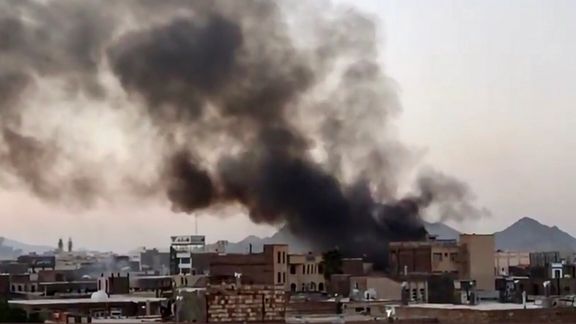
Government media in Iran report that a police commander has been sentenced to 15 months in prison, without mentioning accusations that he raped a teenage girl.

Government media in Iran report that a police commander has been sentenced to 15 months in prison, without mentioning accusations that he raped a teenage girl.
Last year, Sunni Baluch community leaders and people in southeast Iran had accused Ebrahim Kucheckzaei of sexual assault while he was commander of police in Chabahar port city on the Sea of Oman, near Pakistan.
Public anger over the incident contributed to a protest on September 30 in the city of Zahedan when security forces opened fire and killed more than 90 residents. Coupled with anti-regime popular protests, the people of Zahedan have held demonstrations every Friday since the massacre and their religious leader, Mowlana Abdolhamid has become a fierce critic of the Islamic Republic.
Tehran media said that a military court after hearing from “the plaintiff and the family” and examining evidence convicted Kuchakzaei of “some infringements” including actions that discredited the police and filing a false report. They did not mention the alleged sexual assault.
The arrest and conviction of the police commander can be seen as another attempt by the regime to mollify public anger, as five months of protests continue and Western countries impose sanctions on the regime for its human rights violations.
The government has been releasing some political prisoners after a conditional amnesty was announced recently, while still arresting and punishing others for their role in protests or for criticizing the regime.
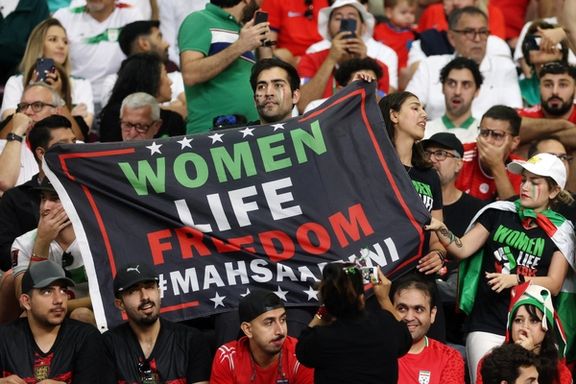
Two prominent sociologists in Iran argue that with the decline in political participation, opportunists got concessions from the state and gained the upper hand.
Mohsen Goudarzi and Abdolmohammad Kazemipour told Shargh newspaper: "We reviewed the data for several decades and we found out that with the decline of trust between the people and the government corruption will rise and the rule of law will take a downturn."
Goudarzi maintained that all this will lead to the government's inefficiency and more corruption which will in turn, further damage the people's trust in the government and other institutions.
He argued that this vicious circle will continue, and as the situation worsens, this is not something citizens can tolerate forever. When the people feel that there is no hope for change and no institutionalized way to bring about change, they will take to the streets.
As long as corruption and inefficiency and other shortcomings persist and cause dissatisfaction, and there is no institutionalized outlet for expressing dissent, protests are always probable.
Goudarzi explained that the government, the economy, and social structures are the main ingredients of a coherent society, but many political elites believe that after politics, the economy plays the most important part in the society. In several periods before and after the 1979 revolution, and even before the revolution, Iranian politicians have asked themselves whether economic development should come before political development or vice versa.
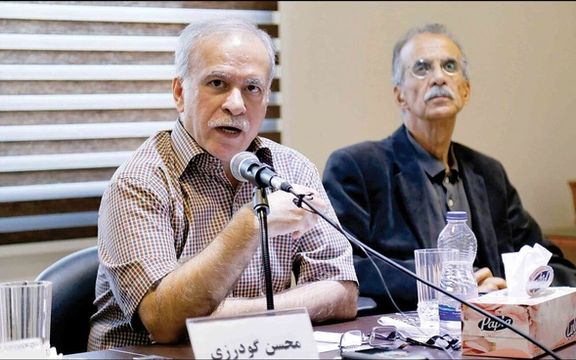
A 1969 document called "The Principles of Cultural Policy" and several other studies in the mid-70s about the future of Iran have all considered social crisis as the core problem for Iran. At that time, they referred to it as a cultural crisis. In the 1970s, sociologists believed that Iran's problem was that economic growth was prioritized over cultural and political growth.
The social scientists of the 1970s believed that a fast-paced economic change had altered the material aspects of the people's life. With the transition from traditional agricultural economy to modern industrial economy, large parts of the population migrated from the villages to the margins of urban areas, where they found themselves in an environment with different ideals and values.
Social scientists believed that the newcomers to the cities found themselves alien to the new environment. In order to escape the anxiety of this dislocation, they took refuge in the safe haven of traditions, particularly in religion, Goudarzi added. The transforming society pursued material values and looked forward to a modern future, but at the same time, people did not tolerate the resulting cultural changes.
Yet another problem was that while economic growth was creating a well-off middle class, doors to political participation remained closed. Sociologists Majid Tehranian, Ali Assadi and Hormoz Mehrdad in 1970s believed that focusing on the economy and ignoring its social and political implications by the Iranian government was the root cause of tensions. They believed that in that situation the society was not able to remain stable.
Time proved them right in a matter of only a few years. Since then, sociologists made sure that focusing on the economy without paying attention to people's political and social needs will lead to catastrophe. But ruling politicians in Iran, both then and now, thought that political participation could be relegated to the background. In their book, "What happened? The story of decline of Iranian society," Mohsen Goudarzi and Abdolmohammad Kazemipour have challenged this view. We have laid emphasis on the idea of balance, said Goudarzi.
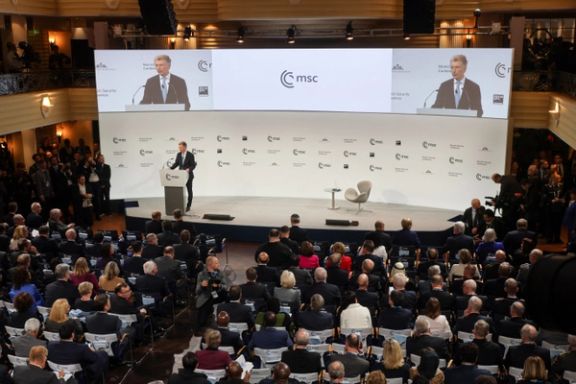
Israel's Defense Minister Yoav Gallant said on Friday that "all possible means" were on the table to prevent Iran from building a nuclear weapon.
He also called on the international community to take action to stop Tehran's proliferation of advanced weapons.
"Iran is currently holding discussions to sell advanced weapons, including UAVs and PGMs, to no less than 50 different countries," he said, referring to combat drones and precision-guided munitions.
Iran has been supplying kamikaze drones to Russia that are used to target Ukraine’s infrastructure. It has also supplied Houthis in Yemen with drone and missile technology, extensively used against Saudi Arabia. Iranian proxy forces such the Hezbollah and Shiite militias in Iraq are also known to have Iranian drones and rockets.
"When we speak of preventing Iran from gaining a nuclear weapon, we must keep all the possible means – I repeat, all possible means on the table," he said, speaking on the sidelines of the Munich Security Conference attended by officials from Bahrain and the United Arab Emirates.
The US and the Arab states comprising the Gulf Cooperation Council (GCC) also held a meeting of the Working Group on Iran this week during the visit of an American delegation to Saudi Arabia and issued a joint statement on Thursday, February 16.
“The United States and GCC member states condemned Iran’s continued destabilizing policies, including its support for terrorism and the use of advanced missiles, cyber weapons, and Unmanned Aircraft Systems (UAS) and their proliferation in the region and around the world,” the statement said.
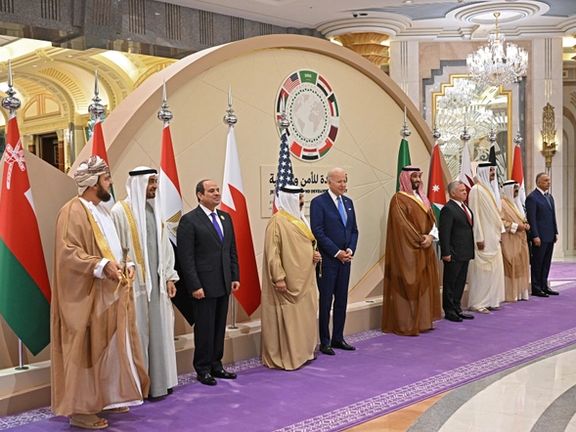
Iran has dismissed a joint statement by the United States and the Gulf Cooperation Council Arab states this week accusing Tehran of malign regional activities.
Spokesman of Iran's foreign ministry, Nasser Kanaani on Friday claimed that the statement is nothing more than a US attempt “to sow discord among regional countries.”
The US and the GCC held a meeting of the Working Group on Iran this week during the visit of an American delegation to Saudi Arabia and issued the joint statement on Thursday, February 16.
“The United States and GCC member states condemned Iran’s continued destabilizing policies, including its support for terrorism and the use of advanced missiles, cyber weapons, and Unmanned Aircraft Systems (UAS) and their proliferation in the region and around the world,” the statement said.
Iran’s Tasnim news website affiliated with the Revolutionary Guard quoted Kanaani who dismissed the joint statement as “repetitive and boring.” He went on to accuse Washington of selling billions of dollars of arms to regional countries and “continuing to support Takfiri terrorism.” Tehran has long been accusing Washington of having created and nurtured extremist Sunni terror groups, such as Al Qaeda.
The Islamic Republic finds itself under tremendous economic and political pressure since September when long-running nuclear talks with the West hit a deadlock, and at the same time nationwide popular protests erupted against the regime.
A third factor contributing to Tehran’s isolation is its supply of killer drones to Russia that have been used against Ukraine’s infrastructure. That has had a major impact on Europe’s attitude toward Iran, leading to sanctions and a discussion of listing the Revolutionary Guard as a terrorist organization.
The Iranian currency has fallen by more than 50 percent in the past six months, fueling more inflation amid strong public dissatisfaction and recurring protests.
Opponents of the regime came out into the streets again on Thursday in many cities, chanting slogans against Supreme Leader Ali Khamenei and the clerical government.
The US and the Persian Gulf Arab states voiced concern over Iran’s weapons proliferation after their meeting. “Iran and its proxies and partners have used these Iranian weapons in attacks striking civilians, critical infrastructure, and international maritime shipping.”
But the statement also expressed deep concern over Iran’s expanding nuclear program. “The United States and GCC member states further underlined that Iran’s nuclear advances as documented by the IAEA, chief among them the production of highly enriched uranium (HEU), have no credible civilian purpose and are gravely exacerbating regional and global tensions.”
Since September, the Biden administration has changed its tone toward the nuclear talks, repeatedly saying that it is no longer focused on reviving the 2015 accord, the JCPOA. Now, both the United States and its European allies have more demands than simply returning to the Obama-era deal. They are saying that Tehran should end its deadly repression against protesters, free all political prisoners, end its military role in Ukraine and its malign activities in the Middle East.
The February 16 joint statement appears to be a US recognition of the deep concerns the Gulf Cooperation Council members have long expressed about Iran’s policies and behavior, and can be a signal of non-nuclear issues becoming a prominent part of any agreement with the Islamic Republic.
“The United States and GCC member states expressed their commitment to expanding defense cooperation and interoperability to enhance their capabilities to constrain Iran’s ability to conduct destabilizing activities and deter it from conducting future acts of aggression,” the statement said.
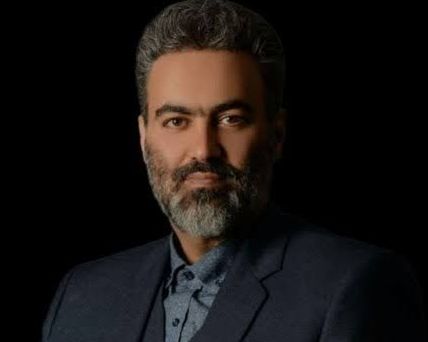
A famous Iranian religious singer – known in Iran as eulogists or maddah – has been shot dead in the northwestern city of Tabriz in East Azarbaijan province.
The body of Habil Afaq-Azar was found on Thursday with bullet wounds in one of the neighborhoods of the city. Apparently, he was killed somewhere else, and his body was dumped there.
Following the murder of Afaq-Azar, Mahmoud Hosseini, the director general of The Islamic advertisement Organization of East Azarbaijan, praised him as one best of “maddahs” of the city, who "had made numerous concert tours to Turkey and Azerbaijan."
No details about the killer(s) or the motivation of the assassination has been immediately available, but maddahs are usually affiliated with the regime and promote its propaganda in Iran and abroad.
Earlier in the month, Azerbaijan’s foreign ministry announced that 39 people were arrested in connection to an Iranian "espionage network" as part of a special operation to uncover subversive activities in the country “under the guise of religion”.
Under Supreme Leader Ali Khamenei, maddahs who used to sing tragic songs in graveyards for families of the deceased or chant tragic stories during the mourning month of Muharram to earn a living, are now the Islamic Republic’s political theoreticians, influential figures in political groups and government offices. They can put anybody’s business on fast track, albeit against a fee, using their influence as individuals close to Khamenei.
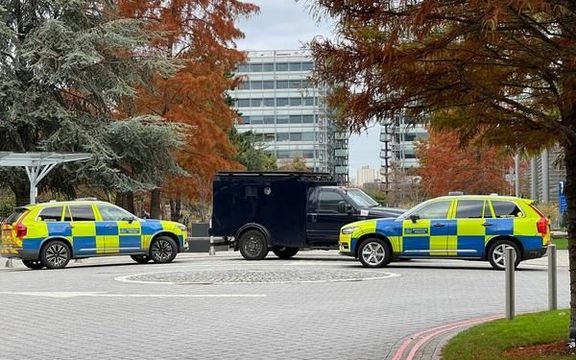
Britain's counter-terrorism police chief said on Thursday his officers are increasingly dealing with threats from hostile states such as Russia, China and Iran.
The announcement signaled a shift from focusing on Islamic extremism to dangers posed by adversarial states. The September 11, 2001, attacks on the United States and deadly incidents in Britain made tackling Islamist plots the priority for counter-terrorism police, with resources focused on the threat from home-grown and foreign-based militants.
Matt Jukes, the head of counter-terrorism at London's Metropolitan Police, said there has been a shift in emphasis as foreign states try to corrupt or intimidate people and are involved in murder and kidnap plots in Britain.
"The requirement for us to play a law enforcement part in countering the threats from hostile states is unprecedented," Jukes told reporters at New Scotland Yard, the Metropolitan Police's headquarters.
The police in London arrested a man last Saturday in the vicinity of Iran International’s headquarters at Chiswick Park and indicted him according to section 58 (1) (b) of the Terrorism Act 2000. He appeared to be surveying the office building where the network has its headquarters.
The suspect, Magomed-Husejn Dovtaev (Mohammad-Hussein Dovtaev), 30, an Austrian national, appeared at Westminster Magistrates’ Court on Tuesday and pleaded not guilty. The suspect's name in Russian spelling signals that he is originally from one of the former Soviet republics, more likely from a Muslim-majority country.
The incident came after the Metropolitan police warned the network in November of serious threats originating from Iran against its journalists and provided extra protection.
Iran has long engaged in terror plots against Iranian dissidents and journalists abroad, conducting intimidation, assassination and kidnapping operations.
Investigations involving state threats have quadrupled in the last the last two years and these cases now account for a fifth of counter terrorism officers' times, he said.
Iran has made at least 15 attempts to kidnap or even kill British nationals or individuals based in the United Kingdom regarded by Tehran as a threat, Jukes said.
Last year, British Foreign Secretary James Cleverly summoned Tehran's most senior diplomat over alleged threats by Iranian security forces to journalists in Britain.
The Iranian embassy in London did not immediately respond to a request for comment by Reuters.
Jukes said police were making inquiries after claims China last year was operating "police stations" in major cities around the world, including New York. China has denied the allegations.
Britain blamed Russia for a 2018 nerve agent attack targeting former Russian double agent Sergei Skripal and his daughter Yulia in Salisbury, southern England, a charge Moscow has denied. And this week a security guard at the British embassy in Berlin was in a London court accused of spying for Russia.
The Metropolitan Police's War Crimes Team, which is a unit within its counter-terrorism command, is also dealing with more than 100 referrals from Ukrainian refugees in Britain related to the war with Russia, he said.
Despite the shift in focus, counter-terrorism police's biggest job is still tackling terrorism. Jukes said police disrupted eight late-stage terror plots last year and in some cases they have been investigating children as young as 13.